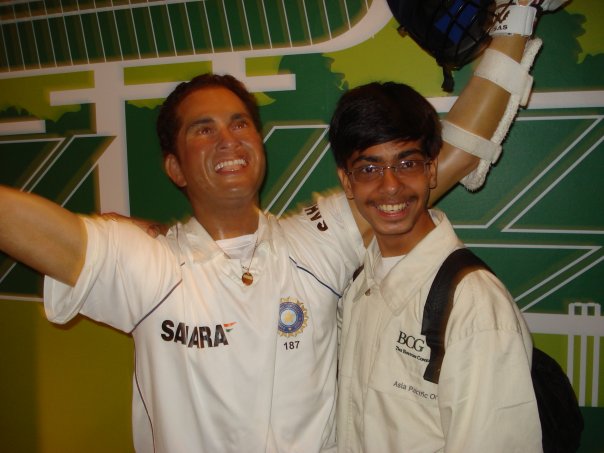The author Jay Sayta is a fourth year law student at the WB National University of Juridical Sciences Kolkata and runs http://glaws.in/, India’s first and only website on gambling laws. The author has written extensively on the issue of gaming laws and has been quoted as an expert in the field by leading national newspapers.
Amidst the brouhaha about the IPL betting controversy and the Supreme Court’s remarks on the need to clean-up corruption in sport administration, it is surprising that most commentators in India have not stressed on the need to have a comprehensive framework to regulate sporting bodies, which are often run as per whims and fancies of its office-bearers.

Ever since the Supreme Court decision in Zee Telefilms & Another v. Union of India (2005) which ruled that BCCI and other sports bodies in India do not fall within the definition of ‘state’ under the Indian constitution, sports associations in India are functioning like an ‘old boys club’ with a select few office-bearers making arbitrary decisions and acting with absolute impunity. Fair trade regulator Competition Commission of India (CCI) had recently fined BCCI Rs. 52.24 crores for monopolistic and anti-competitive practices. CCI had also reprimanded Hockey India for not separating its role as a sports regulator and organiser of commercial events. The BCCI matter is now pending in appeal before the Competition Appellate Tribunal and its operation has been stayed and BCCI continues to act in a high-handed manner with complete disregard for basic norms and procedures.
The reason for the complete opacity of sporting bodies is that there is no Central legislation to compel disclosures and govern the election process. The power to make laws on sports and recreation traditionally vests with the state legislatures under the Indian constitution.
Only few states like Rajasthan, Uttar Pradesh and Himachal Pradesh have enacted ‘Sports Acts’ for their respective states. However, even the legislations for these states only require registration of state sports associations with the registrar of co-operative societies and mandate certain basic requirements for election of office-bearers. There is no requirement for making disclosures to the public at large or for creation of a comprehensive framework to govern sports bodies.
The National Sports Development Bill, 2013 proposed by the Union government seeks to cure many maladies plaguing sporting bodies at present. Drafted by a select committee of eminent sportspersons headed by Justice (retired) Mukul Mudgal, the Bill was proposed after an earlier version of the Bill was considered insufficient by the Union Cabinet in 2011.
The Draft Bill proposed to give effect to various International conventions on sports, suggests important measures to ensure that sporting bodies are governed in a fair and transparent manner. First, it provides for compulsory registration of National Sports Associations or Federations with the Central government. Only registered sporting associations would be entitled to use the word ‘India’ or ‘Indian’ in International sporting events.
Further, all National Sports Federations would be compelled to publish annual audited accounts and a report on annual achievements on its website every year. Additionally, all registered sports federations are required to comply with requirements prescribed in the Draft Bill in matters of election of office-bearers: for instance fair and transparent elections for positions in Sporting Bodies will have to be conducted at least once every four years. Additionally, all office-bearers will have to mandatorily retire at the age of seventy. This will prevent the practice of many office-bearers holding life time positions in sporting bodies. The Draft Bill also envisages representation of at least twenty five per cent sportspersons in the decision making bodies of National Sporting Federations. The sportspersons are to be nominated by an Athletic Advisory Council to be constituted by the National Sports Federations as per rules prescribed by the Central government.
Again, office-bearers against whom criminal charges have been framed would not be eligible to contest elections and every office-bearer would be allowed to hold a position for only two successive terms (However the office-bearer can re-contest elections after a four year cooling off period). The Draft Bill also envisages creation of an Appellate Sports Tribunal to adjudicate any disputes regarding Sports Federations and to oversee the functioning of sporting bodies. The Appellate Tribunal is empowered to cancel registration of sporting bodies who do not comply with requirements of the Bill relating to elections, transparency and disclosures.
However one of the most important provisions of the Bill is bringing all National Sporting Federations within the ambit of the Right to Information (RTI) Act. Only information relating to doping tests, health and fitness of athletes and selection procedure is exempt from disclosure. This provision will ensure that all contracts and tenders awarded by Sporting Federations are open to public scrutiny making it easier to punish acts of corruption and mismanagement of funds.
It is thus clear that the passage of the National Sports Development Bill would be an important measure to ensure some amount of transparency and probity in the conduct of sporting bodies. However it is unlikely that the proposed legislation will be passed sometime in the near future as important politicians cutting across party lines are office-bearers of BCCI and other sporting bodies and would consider any regulation as an encroachment of their personal fiefdom. Perhaps continued public pressure and suggestions by an activist judiciary would be the only way to ensure that the proposed reforms see the light of day.
The author is a fourth year student of the WB National University of Juridical Sciences Kolkata and runs http://glaws.in/, India’s first and only website on gambling laws. The author has written extensively on the issue of gaming laws and has been quoted as an expert in the field by various media houses.
 Serato DJ Crack 2025Serato DJ PRO Crack
Serato DJ Crack 2025Serato DJ PRO Crack







 Allow notifications
Allow notifications


